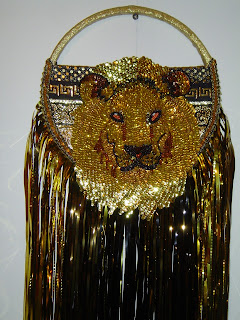 I'm interrupting my "What Did Jesus Teach About" series because of the following. Read at your own risk.
I'm interrupting my "What Did Jesus Teach About" series because of the following. Read at your own risk. I probably shouldn't ask this. It's probably the biggest single can of worms I could possibly open in the Christian and Messianic worlds. However, I keep getting emails asking me questions like "Do you believe in the Trinity?" I was wondering how the rest of you answer this question.
This is my understanding of the "Trinity" issue in the Messianic world.
Most of the Messianic individuals and congregations I've encountered uphold the traditional Christian theology of the Trinity: Father, Son, and Holy Spirit -- three in One. This is a "given" in Christianity but required a bit of "tweaking" in the Messianic world because of the following:
Hear, O Israel: The LORD our God, the LORD is One. -Deuteronomy 6:4This is both a passage from the Bible and the first line in the Shema, the holiest prayer in Judaism and a prayer that is revered in almost all Messianic, One Law-One Torah, and Two-House congregations worldwide.
So God is One or, in Hebrew, "Echad". Here's where the tweaking comes in. You have to believe that "Echad" or "One" means a single unity that can contain a collection of subunits or divisions, like a bunch of grapes being "echad" or a married couple (two individuals) being "echad". Here's the problem:
The Jewish idea of God is that God is One and Indivisible. We cannot divide God up into separate parts, where each part of God is UnEqual to each of the other parts, but somehow they are one and the same. The Hebrew Scriptures describes God as an absolute One, but the Christian's New Testament describes the Christian idea of God as divisible into three parts called a trinity. In the Christian's New Testament, Jesus at one point claims to have different knowledge than other parts of the Christian Trinity. For example, Matthew 24:36 or Mark 13:32.
In another verse, Jesus does not have the same power as other parts of the Christian Trinity, for example, Luke 23:34. And in Matthew 26:42, Jesus's will is not the same as the will of the Father. Indeed, Jesus often contrasted himself with the Father, for example, in John 14:28, or Luke 18:19. Furthermore, Jesus supposedly said that the punishment for blaspheming against one part of the Trinity is not the same punishment for blaspheming against another part of the Trinity.
In the Hebrew Scriptures, however, God is One, as we read in Deuteronomy 6:4, as well as in Isaiah 44:6, where God tells us, "I am the first, and I am the last; and beside me there is no God." When Isaiah tells us that God said, "I am the first," it means that God has no father. When Isaiah tells us that God said, "I am the last," it means that God has no literal son. And when Isaiah tells us that God said, "Besides me there is no God," it means that God does not share being God with any other god, or demi-god, or semi-god, or persons, and there is no trinity.
from WhatJewsBelieve.orgIn short, Jews traditionally don't believe in the Trinity because it requires God to be more than "One". Ask Moses and Aish also offer their reasons why Jews do not believe that Yeshua (Jesus) was the Messiah and why Jews do not expect the Messiah to be God. They expect him to have a divine and unique nature but to be completely human. Also, keep in mind that the Trinity wasn't formally a Christian doctrine until Constantine and the Council of Nicaea. We only have their perspective to help us believe that any individual or group (such as the Jerusalem Council in the mid-1st Century CE) believed in the Trinity before the 4th Century CE.
Now what?
As I said, to the best of my knowledge, the vast majority of Messianics, both Jewish and Gentile, adhere to the theology of the Trinity. I am only aware of a tiny minority of Messianic Jews who have the traditional Jewish view of the Messiah and apply it to Yeshua and those groups exist almost exclusively in Israel.
When I first entered the Messianic/One Law realm, I thought that the issue of the Trinity was a "done deal" but of late, I've been reading the scriptures with a different eye. I'm not trying to insult, offend, or scandalize anyone, but, depending on what part of the Bible you read, you could interpret it either way regarding the deity of the Messiah and the literal existence of the "Trinity". It also occurs to me that, with so many Messianic Jewish congregations professing an "Orthodox Jewish" viewpoint and practice of their faith, perhaps there are congregations that have a better grasp of a non-Trinity understanding of God and of the Messiah.
Anybody out there want to step up to the plate and discuss your understanding of the existence of the Trinity, or lack thereof, and why?
The floor is now open for comments. Let the mayhem begin.